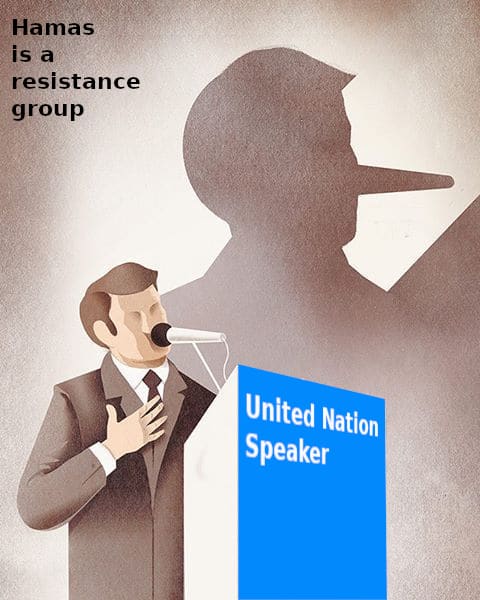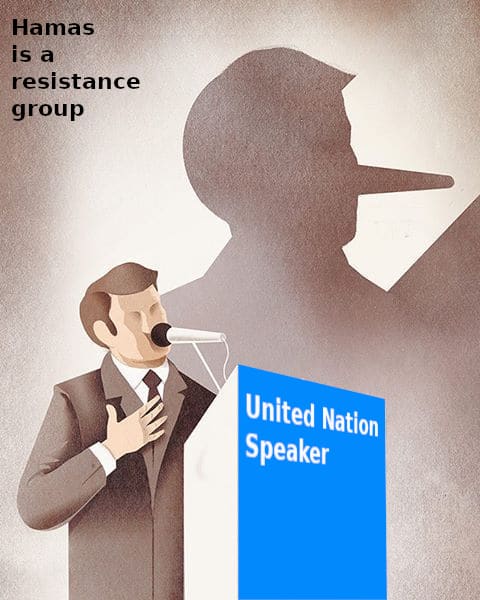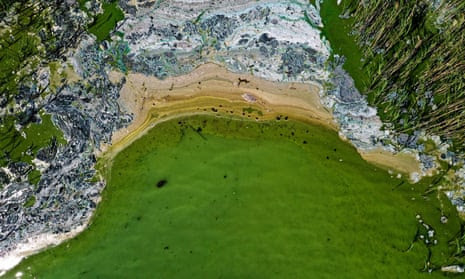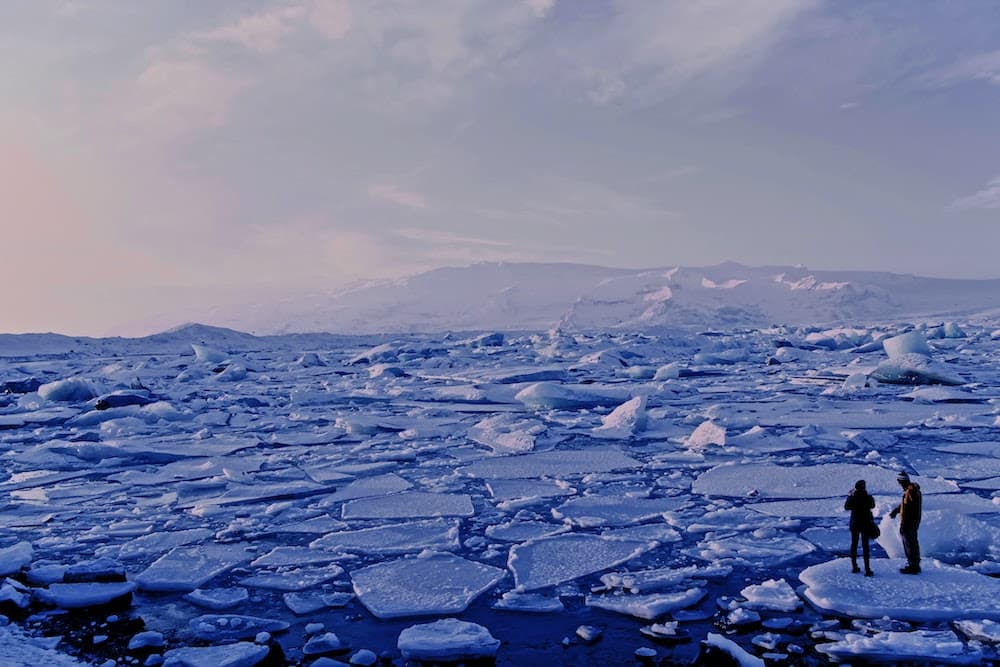
Since its creation in 1946, its role has been reversed, but since it decided to recognize the exit of the State of Israel, its actions on the international scene have always been one war behind, and the list of these mistakes is far too long to enter into a press article, but the most well-known is the UN decisions against Israel, its lack of sanctions and action against the USA in the Vietnam war and Iraq, its lack of firm decisions against Iran on the Iranian nuclear issue, on the war in Lebanon and the establishment of a terrorist organization “Hezbollah”, the massacres of Armenians by Azerbaijani and Turkish troops, the UN’s silence on the massacres of “Uighur” Muslims in China, China’s authoritarian annexation of Hong Kong, the massacre of Christians by Muslim militias in the Central African Republic.

The laisser faire in Syria, where almost 500,000 people have been murdered by President Assad, aided by Russian and Iranian forces. The UN’s scandalous approval of the destruction of Libya by France and the UK, but more than that, it’s the corruption scandals that are killing the UN’s message to the world.
The UN’s biggest scandal, however, remains the Iraqi oil-for-food affair, which was exposed by the excellent journalist Claudia Rosett.
The UN’s “Oil for Food” program, we learn from Claudia Rosett’s report in the Wall Street Journal, was a swindle to the tune of $21 billion, with the money intended for starving Iraqis going instead to Saddam Hussein and his henchmen, to bribed French and Russian companies and, of course, to the UN’s head, Benon Sevan. For this work, she received the 2005 Eric Breindel Award for Excellence in Opinion Journalism.

Claudia Rosette’s criticism of the UN is most scathing, as she declared in 2006:
“The United Nations was founded as a forum of governments. This arrangement was problematic enough in itself. Today, the UN, in violation of its charter, is rapidly becoming a predatory, undemocratic, irresponsible, and self-serving vehicle of world government. The UN is unreliable, crude, inefficient, and incompetent. Moreover, it is configured to penetrate deeply into the national politics of its member states and, through its weight and persistence, to impose on them at least some of the worst elements of its agenda. Only a handful of them are brave enough to oppose all this.
Indeed, with a few notable exceptions, generations of American officials and decision-makers have been content to look the other way at the UN’s myriad deficiencies and derelictions, while occasionally indulging in minor punitive measures.
For many other actors in public life, as well as for many ordinary citizens, the institution itself is still held in almost sacred esteem.”

The Environmental Aid scandal
The United Nations launched the United Nations Development Program (UNDP), which has been the subject of several allegations of fraud and corruption linked to the multi-billion dollar Global Environment Facility (GEF),
There is a report from the UNDP’s Office of Audit and Investigation, from November 2020, and this report describes millions of dollars worth of “financial anomalies” in the UNDP’s portfolio of GEF-funded projects around the world.
The audit highlights numerous frauds, including signs of “fraudulent activities” in two country offices and “suspected collusion between different project managers” in another, without naming the countries.
The audit also states, “The problems identified by the audit could seriously compromise the achievement of the audited entity’s objectives”.
The Global Environment Facility was initiated in 1991 with the World Bank as a partner, to help tackle environmental problems such as deforestation, species conservation and pollution. Now autonomous, the Global Environment Facility has spent over $21 billion in 170 countries, including $7 billion on UNDP-managed projects.
The analysis of GEF-funded UNDP accounts which covers 2018 and 2019 and is the first such review since 2013 comes against a backdrop of growing concern among some donor countries about management and oversight issues within the UNDP.

A Foreign Policy investigation in 2019 published whistleblower testimony alleging the misappropriation of millions of dollars from a UNDP-managed GEF project in Russia. Twelve donor countries – including the US, France, Australia and Japan – have since called for an independent review of the UNDP’s management of the project, according to a letter seen by the FT.
“Issues of misconduct and misappropriation of funds continue to impede sustainable development around the world,” the donors said in March in a letter to Achim Steiner, the UNDP administrator since 2017.
Bob Appleton, a partner at Olshan Frome Wolosky LLP, was head of the UN’s very first anti-corruption unit, the Procurement Fraud Task Force, which existed between 2006 and 2010. He declares:

Bob Appleton
“It is distressing that the United Nations is particularly vulnerable to fraud and corruption because the UN is responsible for self-monitoring, control, and ensuring that programs are free from fraud and corruption.
National authorities will not investigate fraud or corruption involving the UN, as they are not authorized to do so without UN approval. The UN takes the initiative and has the power to decide to relinquish authority and involve a government law enforcement agency in an investigation.
The UN’s role in the world is to improve health care, drinking water, and educational infrastructure. Many FCPA enforcement cases involve the construction of factories, toll roads, rail systems, airports, or other major construction or infrastructure projects. Not surprisingly, many UN projects involve the award of construction contracts. Several UN investigations into fraud and corruption in construction projects can be instructive”.

In the four years Bob has been shining a spotlight on corruption at the UN, he has investigated numerous cases of corruption in the construction sector.
Here are just a few examples. The UN Procurement Fraud Task Force investigated the contract for catering services for all peacekeeping troops on a telecommunications-related mission.
In this case, a high-ranking official was directing contracts and telecommunications equipment worth a hundred million dollars to a preferred supplier. There have been several huge cases involving high-dollar labor contracts to support peacekeeping operations, and several construction and road-building contracts in many developing regions.
In many of these cases, which each involved the award of very large contracts, they were negotiated through third-party intermediaries and sales agents. The idea then was that the use of third-party intermediaries would somehow distance corrupt UN officials from the corrupt activity, which is, of course, a mistake.
The UN has since imposed numerous controls and safeguards governing the use of third parties and making it clear that their actions in no way exonerate UN officials from their responsibilities and accountability for any wrongdoing.
The scandal at Unops, the United Nations Office for Project Services.
The UN has 37 bodies and many other programs, each with its purpose, responsibilities, and, of course, identity. Unops is the United Nations Office for Project Services.
The UN receives substantial remuneration. This includes behind-the-scenes project administration, procurement, staff recruitment, payroll, financial management, logistics, and infrastructure. Unops is a large company, with gross assets approaching 4 billion dollars, working in 80 countries with 12,000 employees.
Recently, UN Secretary-General Antonio Guterres called for the resignation of Unops Executive Director Grete Faremo. The decision also embarrassed Norway, one of the UN’s main donors, as Ms. Faremo is a former Norwegian politician and minister, and her scandalous departure echoes the 2018 fall of another high-ranking Norwegian, Erik Solheim, who headed the United Nations Environment Program (UNEP). It’s a mess. Norwegians, when they’re in government in Norway, they behave perfectly.
UN, it’s a party at every level. The UN has a harmful incentive to corruption.

Mrs Faremo
Ms. Faremo’s faults include questions about her Sustainable Investment in Infrastructure and Innovation (S3i) initiative. According to the results of a UN audit, it appears that Unops leaders waived their own rules of ethics and transparency to award millions of dollars to a single business partner, a holding company called Sustainable Housing Solutions (SHS), chosen without the bidding, due diligence and safeguards that are mandatory under UN procedures.
UNOPS’ association with the SHS fund was supposed to build one million affordable homes for the poor in six countries: India, Pakistan, Nigeria, Ghana, Guinea, and the Caribbean. Not a single house has yet been built, and $22 million of the nearly $60 million investment has been written off. The chances of recovering the difference are slim.
The UN, with its Unops structure, has reached record levels of proven fraud, because what has happened is supposed to have happened with the programmed connivance of its main leaders. It’s easy to draw a parallel with the Oil-for-Food scandal in Iraq, which exploded the presidency at the time with the end of former Secretary-General Kofi Anan’s mandate.
Fortunately, there are honest people in this dishonest structure, thanks to an employee who dared to speak out. He was rewarded, he says, with harassment and intimidation, an experience that the organization’s staff attested was not uncommon at Unops. Unfortunately, it’s common practice at the UN and there’s no integrity, no control, and no pseudo-governance.
The UN was created based on a dream explained in its poetic founding charter, which feeds on innocent idealism and the UN is there to bring hope to the oppressed of the world. The UN is supposed to give help, without taking personal advantage of it. Everyone can understand that its work must be remunerated in some way, but it is out of the question for the UN to profit from human misery or turn its programs into lucrative opportunities.
On the contrary, this is exactly what Unops has done, overcharging other UN agencies for its services, which has enabled it to accumulate huge reserves of around 286 million dollars. Of this sum, around $100 million was then set aside for gambling, through dubious commercial investments such as S3i.
Worst of all, even when the UN investigates its activities, it is usually an internal affair behind closed doors, in which it is the prosecutor, judge, jury, and executioner all rolled into one. And its supreme investigative authority, the Office of Internal Oversight Services, rarely publishes its full reports. It’s impossible to have a clear picture and a clear decision.

Open image viewerUNOPS Executive Director Grete Faremo (left) resigned in May 2022. Vitaly Vanshelbloim (right), UNOPS Deputy Executive Director and head of the programme’s Helsinki office
was suspended from his role in December 2021 following an internal investigation. Image: Seppo Suvela / Yl
In the end, the UN is an organization at the service of the powerful, which itself has become a powerful and destructive machine. The Unops scandal is much more than a story of serious misconduct within the agency. It shows that the interests of certain countries outweigh the interests of the poorest, and that money dominates the ethics of the UN. Just look at the recent scandals surrounding the awarding of the human rights presidency to Saudi Arabia, and this year to Iran.
The UN was intended to bring light to the world, but instead, it is helping to bring more darkness and bitterness.
The UN has become a danger to democracy, acting as a tyrannical organization.




